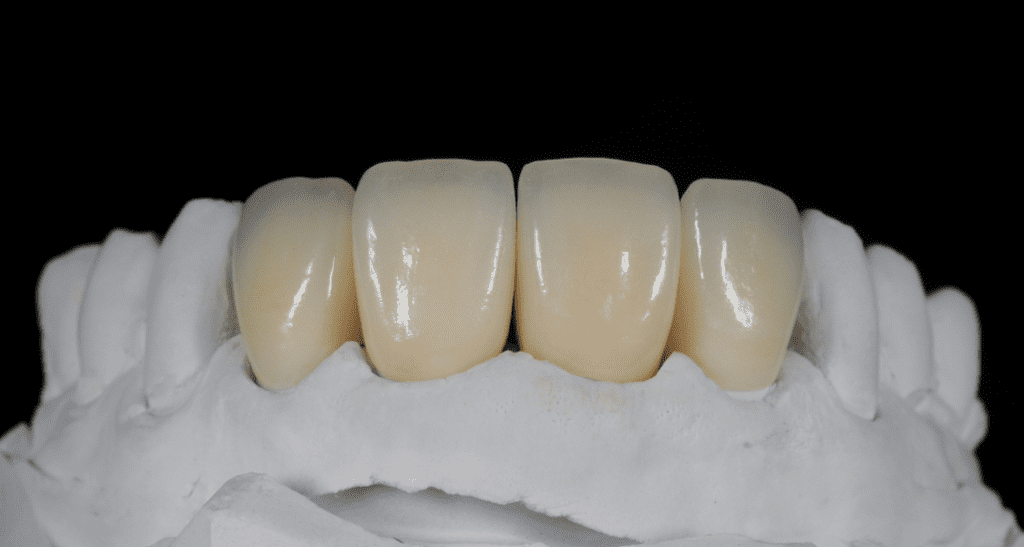Which Is Better, Ceramic or Zirconia Crown?

Tooth crowns are important dental restorations because they improve damaged teeth' looks and functionality. Patients now have a variety of choices to pick from, including zirconia and ceramic tooth crowns, thanks to developments in dental technology. In this blog, we will compare and contrast these two common options to help you make an informed decision about your dental repair needs.
1. Materials
Zirconia Tooth Crowns:
Zirconia tooth crowns are constructed of zirconium dioxide, a strong, white substance. It is a ceramic substance that goes through a particular manufacturing process to improve its strength and appearance. Zirconia crowns are known for their superior durability, biocompatibility, and fracture resistance, making them ideal for posterior (back) tooth restorations.
Ceramic Tooth Crowns:
Ceramic dental crowns, on the other hand, are made of porcelain or other ceramic materials. These crowns are well-known for their natural tooth-like look, translucency, and ability to fit in with neighboring teeth. Because of its excellent cosmetic properties, ceramic crowns are widely utilized for anterior (front) tooth restorations.
2. Aesthetics
Zirconia Tooth Crowns:
The zirconia cap offers an excellent mix of durability and beauty. They have a natural appearance, but due to the nature of the material, they may not be as transparent as ceramic crowns. Zirconia crowns come in a variety of colors to match your natural teeth and can be modified to obtain the desired aesthetic outcome.
Ceramic Tooth Crowns:
Ceramic crowns are the preferred choice for anterior tooth restorations due to their great cosmetic qualities. They have the translucency of natural teeth and can be color-matched to the color and tint of your surrounding teeth, resulting in a seamless and natural-looking repair.
3. Durability and Strength
Zirconia Tooth Crowns:
Zirconia crowns are used for posterior tooth restorations due to their outstanding strength and endurance. They are resistant to fractures and can endure chewing and biting forces. Patients who grind their teeth or have a history of dental fractures may benefit from zirconia crowns, according to their dentist.
Ceramic Tooth Crowns:
Whilenot as strong as zirconia crowns, aceramic crowns arelong-lasting and can sustain regular chewing and biting forces. However, they may be more prone to chipping or fractures than zirconia crowns. Ceramic crowns may be recommended by the dentist for patients who want a natural-looking replacement for their anterior teeth.
4. Biocompatibility and Allergies
Zirconia Tooth Crowns:
The biocompatibility of zirconia crowns is well recognized. They are non-toxic, hypoallergenic, and safe for use on oral tissues. As a result, they are a good choice for people who have metal allergies or sensitivities. The crown specialist will review your medical history and run any required tests to establish whether zirconia crowns are right for you.
Ceramic Tooth Crowns:
Ceramic crowns, particularly porcelain crowns, are also considered biocompatible. They contain no metals and are generally well tolerated by the majority of patients. Some people may be allergic to the materials used in ceramic crowns in rare situations.
5. The Cost
When deciding between zirconia and ceramic crowns, price is a significant factor to consider. While the actual cost varies depending on factors such as geographic location and the complexity of the case, zirconia crowns are generally more expensive than ceramic crowns. The cost of zirconia crowns is higher due to the material's strength, longevity, and sophisticated production process. While still a high-quality option, ceramic crowns are frequently less expensive, making them a popular choice for patients looking for a cosmetically pleasing repair on a limited budget.
Conclusion
In conclusion, depending on the patient's needs and preferences, zirconia and ceramic tooth caps provide distinct advantages. For posterior tooth restorations, zirconia crowns outperform in terms of longevity, strength, and compatibility. Ceramic crowns, on the other hand, offer superior aesthetics and natural-looking outcomes, making them excellent for anterior tooth restorations. It is critical to visit with a knowledgeable prosthodontist who can analyze your oral condition, discuss your goals, and prescribe the best crown material for your unique case to establish your best option.
Post a comment